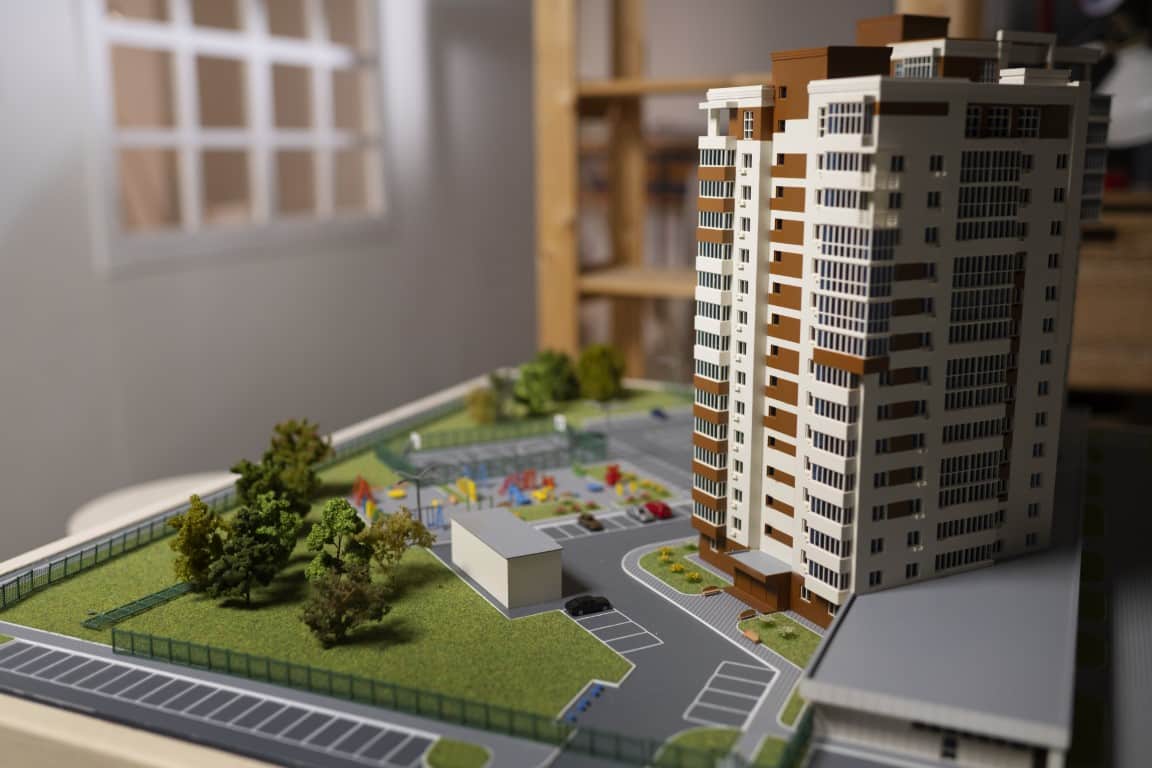Implementing Energy-Efficient Upgrades and Retrofits
Implementing energy-efficient upgrades and retrofits in multi-family properties is essential for reducing energy consumption and environmental impact. These upgrades include:
Energy-Efficient Appliances: Installing energy-efficient appliances such as refrigerators, dishwashers, and washing machines can significantly reduce energy use. Energy Star-rated appliances are designed to consume less energy without compromising performance.
LED Lighting: Replacing traditional incandescent bulbs with LED lighting is a simple yet effective way to lower energy consumption. LEDs use up to 75% less energy and last 25 times longer than incandescent lighting.
Smart Thermostats: Smart thermostats help optimize heating and cooling by learning residents’ schedules and adjusting temperatures accordingly. They can be controlled remotely via smartphones, allowing for efficient energy management.
Insulation Upgrades: Proper insulation reduces the need for excessive heating and cooling by maintaining a consistent indoor temperature. Upgrading insulation in walls, attics, and floors can lead to substantial energy savings.
Renewable Energy Sources: Incorporating renewable energy sources, such as solar panels or wind turbines, can further reduce reliance on fossil fuels. Solar panels, for instance, can provide a clean, sustainable energy source and potentially generate income through energy credits or savings on utility bills.
Water Conservation Strategies for Multi-Family Buildings
Water conservation is crucial in multi-family properties to reduce water usage and lower utility costs. Effective strategies include:
Low-Flow Fixtures: Installing low-flow fixtures, such as faucets, showerheads, and toilets, can significantly reduce water usage. These fixtures are designed to maintain performance while using less water.
Water-Efficient Landscaping: Implementing water-efficient landscaping practices, such as xeriscaping and using native plants, reduces the need for irrigation. Drought-tolerant plants and efficient irrigation systems can minimize water consumption.
Greywater Systems: Greywater systems recycle water from sinks, showers, and laundry for non-potable uses, such as irrigation. This reduces the demand for fresh water and can lower water bills.
Rainwater Harvesting: Installing rainwater harvesting systems allows properties to collect and store rainwater for irrigation and other non-potable uses. This sustainable practice reduces the reliance on municipal water supplies.
Waste Management and Recycling Programs for Multi-Family Properties
Effective waste management and recycling programs are essential for reducing environmental impact and promoting sustainability. Key components include:
Waste Reduction: Encouraging residents to minimize waste through practices such as composting and using reusable products can significantly reduce the amount of waste generated.
Recycling Initiatives: Implementing comprehensive recycling programs ensures that recyclable materials are properly sorted and processed. Providing easily accessible recycling bins and educating residents on what can be recycled are crucial steps.
Composting Programs: Establishing composting programs for organic waste, such as food scraps and yard waste, can divert a significant portion of waste from landfills. Compost can be used to enrich soil in community gardens or landscaping.
Hazardous Waste Disposal: Proper disposal of hazardous materials, such as batteries, electronics, and chemicals, is essential to prevent environmental contamination. Providing designated collection points and educating residents on safe disposal methods are important aspects of this program.

Promoting Sustainable Tenant Engagement and Behavior Change
Engaging tenants in sustainable practices is crucial for the success of sustainability initiatives in multi-family properties. Strategies include:
Tenant Education: Providing educational resources on sustainable living practices, such as energy conservation, water-saving tips, and waste reduction, helps tenants understand their role in sustainability.
Incentive Programs: Implementing incentive programs, such as discounts on rent or utility bills for tenants who adopt sustainable practices, can motivate behavior change.
Sustainability Challenges: Organizing community-wide sustainability challenges, such as energy-saving competitions or recycling drives, fosters a sense of community and encourages participation.
Green Living Resources: Offering resources such as guides, workshops, and online portals with tips and information on sustainable living can empower tenants to make environmentally friendly choices.
Sustainable Landscaping and Outdoor Spaces for Multi-Family Communities
Creating sustainable landscaping and outdoor spaces enhances the environmental and aesthetic value of multi-family properties. Key practices include:
Native Plants: Using native plants in landscaping reduces the need for irrigation and maintenance, as these plants are adapted to the local climate and soil conditions.
Drought-Tolerant Landscaping: Designing landscapes with drought-tolerant plants and efficient irrigation systems conserves water and reduces maintenance costs.
Permeable Surfaces: Installing permeable surfaces, such as porous pavements and gravel, allows rainwater to infiltrate the ground, reducing runoff and promoting groundwater recharge.
Community Gardens: Establishing community gardens provides residents with space to grow their own food, promotes community engagement, and encourages sustainable practices.
Conclusion: Embracing Sustainable Practices for a Greener Future in Multi-Family Property Management
By implementing these sustainable practices, multi-family property managers can enhance efficiency, reduce environmental impact, and create healthier living environments for residents. Embracing energy-efficient upgrades, water conservation strategies, waste management programs, tenant engagement, and sustainable landscaping not only benefits the environment but also provides long-term financial savings and increases property value.
Incorporating sustainable practices into property management is essential for the future of multi-family housing. It aligns with the growing demand for eco-friendly living spaces and demonstrates a commitment to environmental stewardship. As property managers, it’s crucial to stay ahead of the curve by adopting these practices and continuously seeking innovative solutions for sustainability. By doing so, we can contribute to a greener, more sustainable future for our communities and the planet.

